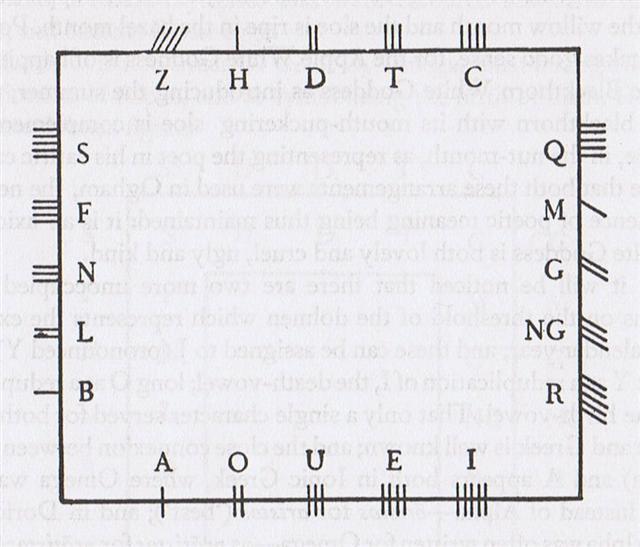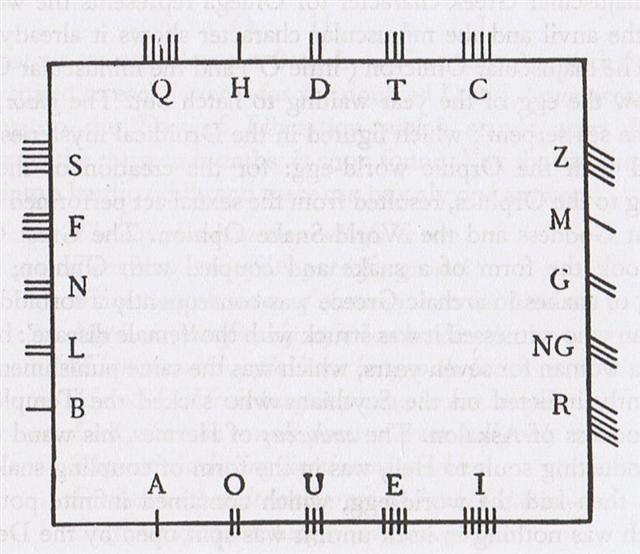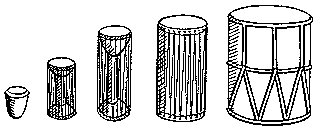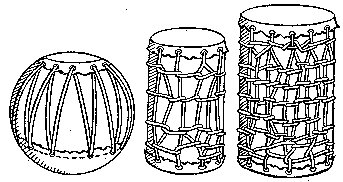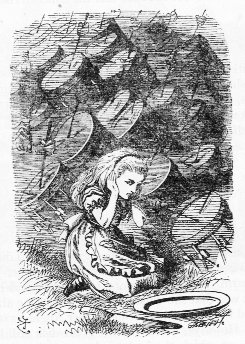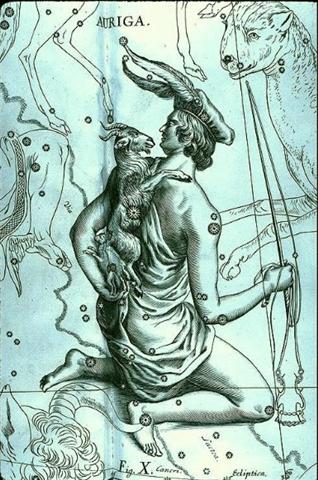|
29
Once again. I think the reason for the immense efforts behind the rongorongo texts was the obvious need to preserve the ancient common sense - before the tornado of major changes would blow it all away. ... Most ingenious Thoth, said the god and king Thamus, one man has the ability to beget arts, but the ability to judge of their usefulness or harmfulness to their users belongs to another; and now you, who are the father of letters, have been led by your affection to ascribe to them a power the opposite of that which they really possess. For this invention will produce forgetfulness in the minds of those who learn to use it, because they will not practise their memory. Their trust in writing, produced by external characters which are no part of themselves, will discourage the use of their own memory within them. You have invented an elixir not of memory, but of reminding; and you offer your pupils the appearance of wisdom, not true wisdom, for they will read many things without instruction and will therefore seem to know many things, when they are for the most part ignorant and hard to get along with, since they are not wise, but only appear wise ...
... At Opoa, at one of the last great gatherings of the Hau-pahu-nui, for idolatrous worship, before the arrival of European ships, a strange thing happened during our [the two priests of Porapora, Auna-iti and Vai-au] solemn festivity. Just at the close of the pa'i-atua ceremony, there came a whirlwind which plucked off the head of a tall spreading tamanu tree, named Paruru-mata'i-i-'a'ana (Screen-from-wind-of-aggravating-crime), leaving the bare trunk standing. This was very remarkable, as tamanu wood is very hard and close-grained. Awe struck the hearts of all present. The representatives of each people looked at those of the other in silence for some time, until at last a priest of Opoa named Vaitą (Smitten-water) exclaimed, - E homa, eaha ta 'outou e feruri nei? (Friends, upon what are you meditating?) - Te feruri nei i te tapa'o o teie ra'au i motu nei; a'ita te ra'au nei i motu mai te po au'iu'i mai. (We are wondering what the breaking of this tree may be ominous of; such a thing has not happened to our trees from the remotest age), the people replied. Then Vaitą feeling inspired proceeded to tell the meaning of this strange event I see before me the meaning of this strange event! There are coming the glorious children of the Trunk (God), who will see these trees here, in Taputapuatea. In person, they differ from us, yet they are the same as we, from the Trunk, and they will possess this land. There will be an end to our present customs, and the sacred birds of sea and land will come to mourn over what this tree that is severed teaches. This unexpected speech amazed the people and sages, and we enquired where such people were to be found. Te haere mai nei na ni'a i te ho'e pahi ama 'ore. (They are coming on a ship without an outrigger), was Vaitąs reply. Then in order to illustrate the subject, Vaitą, seeing a large umete (wooden trough) at hand, asked the king to send some men with it and place it balanced with stones in the sea, which was quickly done, and there the umete sat upon the waves with no signs of upsetting amid the applauding shouts of the people ...
Pahu. Drum. Pahu-rutu-roa = Long-beating-drum. Barthel.M. Pahū. Tree gong. Starzecka. Pahu uma, coffin; in modern usage, any sort of jar. Pahupahu = To dig a hole. Vanaga. A trough, barrel, cask, cradle, drum, chest, box; pahu nui, a kettle; pahu oka, a drawer; pahu papaku, coffin; pahu rikiriki, sheath; pahu viriviri, hogshead. Pahupahu, box. Churchill. A trough, barrel, cask, cradle, drum, chest, box; pahu nui, a kettle; pahu oka, a drawer; pahu papaku, coffin; pahu rikiriki, sheath; pahu viriviri, hogshead; pahupahu, box. P Mgv., Ta.: pahu, a drum. Mq.: pahu, a drum, a large cylindrical container. (To.: bahu, a hollow tree set in water as a filter.) Sa.: pusa, a box. To.: buha, id. Fu.: pusa, id. Niue: puha, id. Pau.: puha, id. Pahuahi, lantern, beacon. Paukumi, closet, cupboard. Pahupopo, a mould; pahupopokai, cupboard for food. Pahure: 1. To sweep everything away. 2. To wound, to lacerate, scar, bruise, lesion, sore; pahurehure, to wound, to scratch; hakapahure, to wound. T Pau.: pahure, to be skinned; pahore, to peel off, to scale. Mgv.: pahore, to cut off, to chop, to slice. Ta.: pahore, to flay, to skin. Churchill 2.
... The most important of all drums, he said, was the armpit drum. The Nummo made it. It consists of two hemispherical wooden cups connected through their centres by a slender cylinder. It is like an hour-glass with a very long narrow neck. With this instrument tucked between his left arm and armpit, the drummer, by pressing on the hollow structure of thin wood, can tighten or relax the tension on the skins and so modify the tone. 'The Nummo made it. He made a picture of it with his fingers, as children do today in games with string.' Holding his hands apart, he passed a thread ten times round each of the four fingers, but not the thumb. He thus had forty loops on each hand, making eighty threads in all, which, he pointed out, was also the number of teeth of his jaws. The palms of his hands represented the skins of the drum, and thus to play on the drum was, symbolically, to play on the hands of the Nummo. But what do they represent? Cupping his two hands behind his ears, Ogotemmźli explained that the spirit had no external ears but only auditory holes. 'His hands serve for ears,' he said; 'to enable him to hear he always holds them on each side of his head. To tap the drum is to tap the Nummo's palms, to tap, that is, his ears.' Holding before him the web of threads which represented a weft, the Spirit with his tongue interlaced them with a kind of endless chain made of a thin strip of copper. He coiled this in a spiral of eighty turns, and throughout the process he spoke as he had done when teaching the art of weaving. But what he said was new. It was the third Word, which he was revealing to men ...
In June 7 the Sun was rising not only together with Mother Goat (Capella in Auriga)
but also with Rigel - the 'Foot' of Orion. ... In view of the almost universal prevalence of the Pleiades year throughout the Polynesian area it is surprising to find that in the South Island and certain parts of the North Island of New Zealand and in the neighboring Chatham Islands, the year began with the new Moon after the early morning rising, not of the Pleiades, but of the star Rigel in Orion ... ... Antevorta and Postvorta had two altars in Rome and were invoked by pregnant women as protectors against the dangers of childbirth. Antevorta was said to be present at the birth when the baby was born head-first; Postverta, when the feet of the baby came first ... ... The four males and the four females were couples in consequence of their lower, i.e. of their sexual parts. The four males were man and woman, and the four females were woman and man. In the case of the males it was the man, and in the case of the females it was the woman, who played the dominant role. They coupled and became pregnant each in him or herself, and so produced their offspring. But in the fullness of time an obscure instinct led the eldest of them towards the anthill which had been occupied by the Nummo. He wore on his head a head-dress and to protect him from the sun, the wooden bowl he used for his food. He put his two feet into the opening of the anthill, that is of the earth's womb, and sank in slowly as if for a parturition a tergo. The whole of him thus entered into the earth, and his head itself disappeared. But he left on the ground, as evidence of his passage into that world, the bowl which had caught on the edges of the opening. All that remained on the anthill was the round wooden bowl, still bearing traces of the food and the finger-prints of its vanished owner, symbol of his body and of his human nature, as, in the animal world, is the skin which a reptile has shed ... ... The Euripus, which has already come up in the Phaedo, was really a channel between Euboea and the mainland, in which the conflict of the tides reverses the current as much as seven times a day, with ensuing dangerous eddies - actually a case of standing waves rather than a true whirl. We meet the name again at a rather unexpected place, in the Roman circus or hippodrome, as we know from J. Laurentius Lydus (De Mensibus I.12), who states that the center of the circus was called Euripos; that in the middle of the stadium was a pyramid, belonging to the Sun; that by the Sun's pyramid were three altars, of Saturn, Jupiter, Mars, and below the pyramid, altars of Venus, Mercury, and the Moon, and that there were not more than seven circuits (kykloi) around the pyramid, because the planets were only seven. (See also F. M. Cornford's chapter on the origin of the Olympic games in J. Harrison's Themis (1962), p. 228; G. Higgins' Anacalypsis (1927), vol. 2., pp. 372ff.) This brings to mind (although not called Euripus, obviously, but 'the god's place of skulls') the Central American Ball Court which had a round hole in its center, termed by Tezozomoc 'the enigmatic significance of the ball court', and from this hole a lake spread out before Uitzilopochtli was born ... ... That there is a whirlpool in the sky is well known, it is most probably the essential one, and it is precisely located. It is a group of stars so named (zalos) at the foot of Orion, close to Rigel (beta Orionis, Rigel being the Arabic word for 'foot'), the degree of which was called 'death', according to Hermes Trismegistos, whereas the Maori claim outright that Rigel marked the way to Hades (Castor indicating the primordial homeland) ... ... There is a mill which grinds by itself, swings of itself, and scatters the dust a hundred versts away. And there is a golden pole with a golden cage on top which is also the Nail of the North. And there is a very wise tomcat which climbs up and down this pole. When he climbs down, he sings songs; and when he climbs up, he tells tales ...
|
